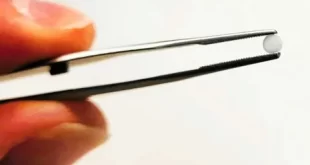About the Project
Materials that allow the rapid motion of ions are essential for the new energy technologies needed to meet the challenge of net zero, such as batteries, fuel cells and electrolysers for green hydrogen. We have recently discovered a new lithium solid electrolyte that changes previous understanding of how to design fast ion transport in solid state materials (Science 383, 739, 2024). This project will explore the enormous range of possibilities for the synthesis of new lithium- and magnesium-ion conducting materials based on this discovery. It will combine synthetic solid-state chemistry, advanced structural analysis, and measurement of the conductivity and electrochemical properties of the new materials, enabling the successful candidate to develop a diverse experimental skillset. The student will participate in the selection of synthetic targets as part of a multidisciplinary team that combine artificial intelligence and computational methods with chemical understanding to design new materials – the process that led to our recent discovery, which the student will have the opportunity to participate in and improve.
The project is based in the Materials Innovation Factory (https://www.liverpool.ac.uk/materials-innovation-factory/) at the University of Liverpool. The project will make use of tools developed in the multi-disciplinary EPSRC Programme Grant: “Digital Navigation of Chemical Space for Function” and the Leverhulme Research Centre for Functional Materials Design, that seek to develop a new approach to materials design and discovery, exploiting machine learning and symbolic artificial intelligence, demonstrated by the realisation of new functional inorganic materials. Examples include the first tools to guarantee the correct prediction of a crystal structure (Nature 68, 619, 2023), and to learn the entirety of known crystalline inorganic materials and guide discovery (Nature Communications 12, 5561, 2021). We recently developed machine learning models based on the largest dataset of experimentally measured Li ion conductivities to yield an easy to use tool that assist experimenter decision in material target selection (npj Computational Materials 9, 9, 2023). You will thus gain understanding of how the artificial intelligence and computational methods developed in the team accelerate materials discovery, and be able to contribute to the development of these models, which are designed to incorporate human expertise.
As well as obtaining knowledge and experience in materials synthesis, crystallography and measurement techniques, the student will develop skills in teamwork and scientific communication, as computational and experimental researchers within the team work closely together. A recent outcome example of these successful collaborations includes the discovery of new Li ion conducting oxide argyrodites which demonstrate enhanced stability over sulphide materials (Journal of the American Chemical Society 144, 22178, 2022). There are extensive opportunities to use synchrotron X-ray and neutron scattering facilities.
Applications are welcomed from students with a 2:1 or higher master’s degree or equivalent in Chemistry, Physics, or Materials Science, particularly those with some of the skills directly relevant to the project outlined above. Experience in structural characterisation of inorganic materials or electron microscopy is an advantage.
Please ensure you include the project title and reference number CCPR097 when applying.
https://www.liverpool.ac.uk/study/postgraduate-research/how-to-apply/
We want all of our staff and Students to feel that Liverpool is an inclusive and welcoming environment that actively celebrates and encourages diversity. We are committed to working with students to make all reasonable project adaptations including supporting those with caring responsibilities, disabilities or other personal circumstances. For example, If you have a disability you may be entitled to a Disabled Students Allowance on top of your studentship to help cover the costs of any additional support that a person studying for a doctorate might need as a result.
Enquiries & Applications
Informal enquiries should be addressed to Dr Claridge (j.b.claridge@liverpool.ac.uk).
Please apply by completing the online postgraduate research application form here:
https://www.liverpool.ac.uk/study/postgraduate-research/how-to-apply/.
Please ensure you quote reference CCPR097 in your application.
Job Features
| Job Category | Doctorat |
 Etudes Non Stop Etudes Non Stop
Etudes Non Stop Etudes Non Stop



